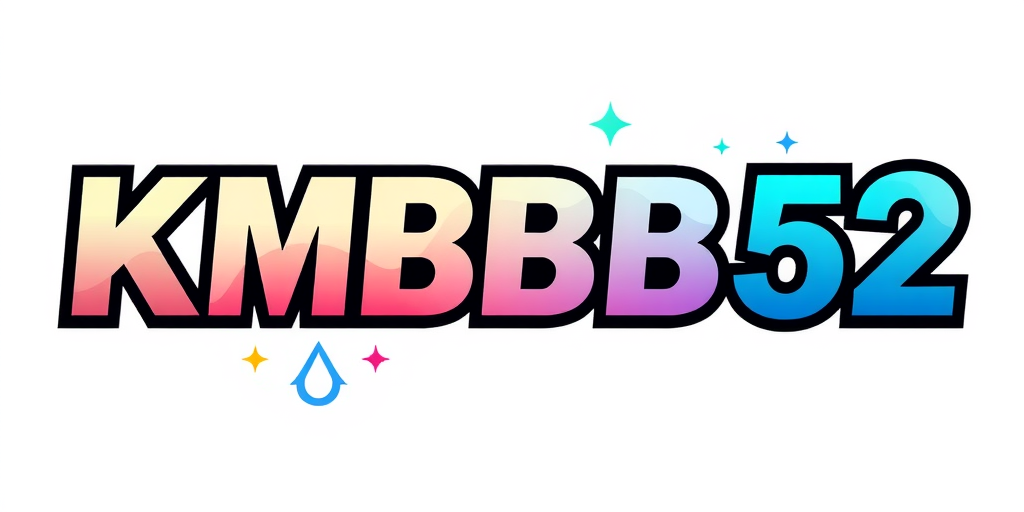

News
The Man Without Fear: Born Again Formally Confirmed for Series 3

Dennis Brown
18 Sep 2025

News
Spanish Club Player Raúl Asencio to Stand Before Court Over Alleged Distribution of Private Footage
By Dennis Brown
18 Sep 2025
 News
News
Mourinho Is Back at SL Benfica After 25 Years: Revered Yet Risky?
By Dennis Brown
18 Sep 2025
 News
News
‘I’m a Go-Getter’: The Multifaceted Star on Music, Parenting and One Battle After Another
By Dennis Brown
18 Sep 2025
Today's Top Highlights


Donald Trump Is Set to Be Gone, Yet Britain’s Challenges Shall Persist. Starmer’s Invitation Was a Big Mistake
 By Dennis Brown
•
18 Sep 2025
By Dennis Brown
•
18 Sep 2025


Royals, Maga and Technology Executives: Notable Observations from the Official Dinner Attendee Roster
 By Dennis Brown
•
18 Sep 2025
By Dennis Brown
•
18 Sep 2025


Publicity Frenzy Surrounds the Teen Sensation, But He Has a Unique Ability to Handle
 By Dennis Brown
•
18 Sep 2025
By Dennis Brown
•
18 Sep 2025

Dire Crisis within northern Gaza while Israeli Forces Continue Operations
 By Dennis Brown
•
18 Sep 2025
By Dennis Brown
•
18 Sep 2025


The Reason Hollow Knight: Silksong Proves to Be Dang Hard, According to Its Developers
 By Dennis Brown
•
18 Sep 2025
By Dennis Brown
•
18 Sep 2025



Simeone, Liverpool's Home Ground and Some Shouting in the Professional Environment
 By Dennis Brown
•
18 Sep 2025
By Dennis Brown
•
18 Sep 2025
September 2025 Blog Roll
- https://globeweeklynews.com/
- LC88
- xx88
- 789winheino.com
- 5mb.boo
- https://xx88.shopping/
- meongwin
- KUBET3933
- https://heylink.me/mega888game/
- 789BET
- 789BET
- mm88.com
- https://mm88.agency/
- mm88
- new 88
- https://23win.finance/
- https://58win.capital/
- online casinos malaysia
- buntogel
- mm88 com
- slot gacor
- ku88
- Lu88
- May88
- Max88
- UK88
- okfun.com
- https://vmax.onl/
- nhà cái u888
- Kubet
- online casinos
- 789P
- https://nohutm.com
- HZ88
- HM88
- AF88
- 888NEW
- EU9
- 89BET
- 68WIN
- GO99
- TV88
- NOHU90
- XN88
- go8
- GO8
- GO99
- https://lode88.sa.com/
- https://lu88k.com/
- https://nbet.shoes/
- https://max88a.com/
- https://uk88.sa.com/
- xo88
- tx88
- https://okwin.casa/
- https://5mb.day/
- EV88
- wettanbieter ohne oasis
- meilleur casino en ligne France
- https://lode88.de/
- https://789f.fan/
- Nhà cái uy tín
- kubet77
- kèo bóng đá
- casinos not on gamstop
- nổ hũ
- online spielothek
- casino spiele kostenlos spielen ohne anmeldung
- https://79sodo.biz/
- gamstop
- online casino
- https://lc88comm.com/
- GEM88
- Fb88
- w88
- w88
- MM88
- slot 1000
- nanastoto
- https://du88v.net/
- Five88
- https://5mb.icu/
- https://5mb.gg/
- https://5mb.io/
- https://5mb.es/
- casino online deutschland
- https://5mb.onl/
- 78 win
- iwin
- rikvip
- rikvip
- bk8
- bk8
- 8xbet
- gem88
- gem88
- Nhà cái oxbet
- online slots deutschland
- besten wettanbieter österreich
- QQ88
- LUCK8
- kkwin. com
- https://kuwinn.app
- https://agenzona66.com/
- okwin
- best canadian online casino
- canada online casinos
- top online casinos in Canada
- best online casinos canada
- online casinos in canada
- Miso88e.org
- https://tg88.tech/
- go8
- vuabet88
- E2BET
- E2BET
- E2BET
- canadian online casino
- New88
- New88
- teko4d
- https://q789win.vip/
- https://hm88.actor/
- https://88aa.golf/
- Sunwin
- gk88t2.com
- https://fsbet.net/
- https://tx885.com/
- https://da88q.net/
- https://lucky88b.net/
- https://sky88us.com/
- Lương sơn TV
- https://zona66.cam/
- Leo88
- casinos online
- lương sơn tv
- lương sơn tv
- OLE777
- xlbola login
- https://luongson117.tv/
- lương sơn tv
- ai88
- RR88
- https://lt88.video/
- i9bet
- 69VN
- u888
- slot gacor
- https://abc8uk.com/
- https://9bet.bingo/
- meilleur casino en ligne
- TIP88
- https://68winss.com/
- slot
- 789 win
- aplikasi slot online
- QQ88 COM
- https://nhacaiuytinvl.com/
- sis4d
- mmoo
August 2025 Blog Roll
- hamtoto
- SV368
- link alternatif api66
- jacpot mega888
- j88
- login gacor88
- link Aloha4d
- https://shbet.vin/
- beta138
- slot gacor
- OK9
- spotlightstories
- ponderpost
- best casino apps
- chroniclecast
- Lương sơn TV
- kèo nhà cái bet88
- slot pragmatic play
- เว็บสล็อตตรง
- slot online terbesar
- xx88.bike
- qq88 okvip
- Tx 88
- https://99win.cash/
- SV368
- 89bet
- LUCK8
- 23win
- 32win
- hi88.biz
- hm88
- akun pro monaco
- 9bet
- OKWIN
- https://58win.watch/
- okwin.com
- slot gacor
- bet88
- u888
- casino en ligne France
- 58WIN
- XX88
- KJC
- eslot
- wps官网
- E2BET
- reportrally
- deneme bonusu veren siteler
- XX88
- Debet
- Bkk win
- www.thecitycentre.london
- dunia108
- bk88
- TK88
- 100vip
- website slot gacor
- mm88
- sabung ayam online
- https://pg88vn.lat/
- 79king
- 23win
- hi88
- Slot Online
- Slot
- slot88
- Kubet casino
- King88
- u888
- Kubet
- 789bet
- https://bk8win.io/
- TG88
- LUCK8
- Thabet
- api88 login
- QQ88 COM
- qh88
- ai meta hack
- 8XBET
- Nohu
- DA88
- situs togel
- オンラインカジノ おすすめ 最新情報
- SV368
- trendtimes
- ai88bet
- naga508
- https://mm88.gold/
- https://kreativekustoms.net/
- 32win
- https://km88.monster/
- mantap555
- Lương sơn TV
- https://rr88.build/
- slot
- หวยออนไลน์
- romabet giriş
- kutu4d
- 33win
- https://f8bet-vn.com/
- u888.com
- สล็อต
- BONG88
- best online casinos canada
- f8bet
- 23win
- bigdewa
- XX88
- BẮN CÁ ĐỔI THƯỞNG
- 123win
- https://fb88j.com/
- rr88
- https://xx88.asia/
- les casinos en ligne fiables ici
- betvnd
- data macau
- https://32winse.com/
- xoso66
- ok365
- Lương sơn TV
- okwin
- situs slot gacor
- KeoNhaCai
- 8kbet
- nhà cái 789p
- 789F
- https://23win.cab/
- creditcard casino
- TD88
- awareagenda
- tdtc
- mm88
- MM88
- https://83067.org/
- Bet88
- F8BET
- https://uu88.page/
- MM88
- TD88
- best sports betting sites dubai
- vividvibes
- bay789
- best online casinos dubai
- RR88
- zbahis
- slot nexus
- kjc website
- slot okesultan
- slot online
- Ok365
- Hello88
- candu123
- doyan5
- OK9
- https://58win79.com/
- best online sports betting singapore
- https://88clbbb.com/
- 78WIN
- casino utan spelpaus
- five88
- https://mm88.design/
- https://www.emprendeimperio.com/
- SBOTOP
- https://u8888one.baby/
- E2BET
- hi88o.com
- https://sunwinners.com/
- 58WIN
- da88
- slot online
- M88
- ABC8
- fo88
- Demo Slot PG
- UU88
- casino utan spelpaus
- 실시간카지노사이트
- MM88
- bet88
- RR88
- https://kuwin.house/
- https://bet88vn.london
- E2bet Rentals
- pg88 game
- https://68xbet.net/
- siaran99
- slot gacor
- abc8
- gacorbet88
- Nhà cái uy tín
- Bandar Togel
- okking
- meilleur casino en ligne France
- bong88
- ZEUS007
- 98WIN
- slot777
- binjaitoto
- berita138
- 13WIN
- Lucky88
- SITUSWIN
- https://keonhacaitv.net
- slot gacor 777
- J88
- Fb88
- ww88
- 789WIN
- mpo slot
- kuwin
- http://83067.org/
- https://acuraclientracing.net/
- gk88
- Hi88com.biz
- SV88
- truthtribune
- ok9
- 98win com
- deneme bonusu
- 789WIN
- miso88
- https://sv3688.live/
- แทงหวย
- koinvegas
- https://du88.us.com/
- https://i9bet.locker/
- สล็อต 789
- https://bet8803.net/
- F168
- xo88
- เว็บสล็อต
- cemeslot
- Sawer4d
- 33win
- mpo777
- https://okwin.care/
- https://bet88zb.com/
- lương sơn tv
- Nhà cái xx88
- kèo nhà cái
- MM88
- U888
- trendtalk
- Miso88
- KUWIN
- lode88
- qq88 okvip
- mantap 555
- xin88
- PG99
- slot scatter hitam
- https://k8cc.faith/
- hb88
- upinslot
- https://79kingi.com/
- w69
- dewacash
- XX88
- OK9
- https://23wincom.tv/
- kangtoto
- สล็อต168
- 789win
- five88
- 33winae.com
- nhà cái uy tín
- OK9
- hi88
- akun pro singapore
- 88bet
- xx88
- tỷ lệ kèo nhà cái
- GA179
- https://vnd77-viet.com/
- slot online
- https://13win.money/
- lxtoto
- https://789win1.live/
- 23win
- 8XX
- https://www.ku11.boo/
- 789win
- slot gacor subuh ini
- https://dola789.events/
- văn khánh tv
- https://32win.dev/
- 789win
- doyan5
- XX88
- dunia777
- Ku win
- SV368
- okwin
- slot dana
- BJ88
- OK9
- pg99
- https://king88.international/
- Operabola
- situs togel
- J88 casino
- doyan5
- best online casino sites singapore
- ww88
- mbak4d
- ww88
- 58win
- F168VIP
- https://www.addictologie.org/
- slot77
- skor88
- mindmingle
- AMARTOTO
- vin88
- pg99.com
- https://789win.market/
- NỔ HŨ
- SLOT GACOR
- win55
- CWIN
- Demo Slot
- neng4d
- https://linklist.bio/goltogel
- insightavenue
- ww 88
- bang vape
- slot777
- https://ggwin.movie/
- ok9
- crypto casinos
- u888 casino
- slot gacor
- abc88
- slot88
- https://ok365vn.dev
- OKWIN TV
- domtoto
- https://nohu.locker/
- arena tempur slot
- cwin
- Cwin
- https://kkwin.tech/
- okwin
- QQ88
- pg88
- https://nftp.muet.edu.pk/
- xx88 casino
- Nohu90
- QQ88
- XX88
- XX88
- best crypto casinos
- 33win
- gk88
- KUBET
- https://bj88bj88.com/
- GK88
July 2025 Blog Roll
- layaktoto
- 13win
- https://shbet28.com/
- J88
- quirkquest
- vipwin
- dang ky m88
- td88
- aslotre
- ufabet
- MM88
- Hit77
- jayaslot
- Trang game giải trí
- Akun Pro Rusia
- ww88
- https://oxbet.channel/
- 58WIN
- https://kubet3377.com/
- เว็บสล็อต
- สล็อต
- 8kbet
- https://pg88vn.my/
- 69vn
- toto macau
- telegram 下载
- 79king
- สล็อต
- https://fb88.nexus/
- mbak4d
- 789P
- lucky88
- 搜狗输入法下载
- Udangbet
- sigapbet
- https://pg88vn.tokyo/
- bandar slot online
- 69VN
- E2BET
- Aparthotel.com
- u888
- poker88
- dinasti555
- Dakrenovatie
- slot demo
- pulseponderings
- https://j88play.com/
- https://33win.bingo/
- OK9
- reflectrealm
- jkbet88
- j88
- pg99
- https://lode888s.com/
- 8KBet
- https://may8899.com/
- RR88
- wingslots77
- 58WIN
- alo789
- ok365
- https://9ae888.com/
- quillquest
- batik55
- BET88
- luminarylife
- https://11bett.one/
- kangjitu
- rr88
- uus777
- TX88
- https://ax88.store/
- 슬롯사이트
- U888
- japritoto togel
- https://tx88.help/
- informedinsight
- 33WIN
- akun pro hongkong
- 69VN
- rr88
- 69vn
- ufa350
- klikfifa
- cpc2888
- ยูฟ่าแคม
- INDO0877
- https://king88.giving/
- Metal Promotion Greece
- shbet
- https://lucky8822.com/
- 99OK
- Ufabet
- 33 win
- https://ok9us.com/
- Bandar Togel
- 23 bet
- kubet
- 789club
- 69vn nhận 169k
- Ty le keo
- 88CLB
- link Aloha4d
- onbet
- 69VN
- 9bet
- HB88
- 69vn
- MM88
- insightink
- VMAX
- newsnexus
- 8kbet
- Da88
- slot oke sultan
- mdgwin
- epochechoes
- remipoker
- slot gacor
- slot88
- fastest paying crypto casino
- togel
- ufabet
- kointoto
- 88BET
- https://nhacaiuytin.tips/
- BET88
- toto slot
- porno grafi terbaru
- Fun88
- https://mm88.build/
- https://kubett.diy/
- สล็อตเว็บตรง
- dinasti555
- ufabet เว็บตรง
- situs toto
- KING88
- J88
- ALO789
- 88clb
- 23WIN
- slot qris
- kutu4d
- https://ax88xx.com/
- King88
- lucky88
- beste online casino zonder cruks
- hi88
- https://k8cc.energy/
- link Aloha4d
- i9bet
- https://bet88vv.org/
- https://lode88.at/
- https://qq88pro.vip/
- betclub89
- kuwin
- BJ88
- Kubet
- Velo Folding Electric Bike Fold 1
- https://pg88vn.pro/
- สล็อต666
- zenostogel
- xổ số shbet
- https://188betgame1.com/
- สล็อต888
- 8kbet
- nexusnotes
- suncity
- insightinquirer
- XX88
- 69VN COM
- deneme bonusu veren siteler
- bong88
- J88
- 789win
- https://lu88.homes/
- SV388 Casino
- bandar togel
- bet88
- wanderwords
- rr88
- dewahub
- v9bet
- 32win
- https://77wina1.com/
- kí tự đặc biệt
- nohu
- https://bet68gamebai.com/
- lsm99
- TK88
- Singapore casino sites
- https://79kingg.me/
- ALO789
- tisu4d
- cpc2888
- https://agbatalha.pt/aeb/
- bj88
- fake flight ticket
- VankhanhTV
- MB66
- kubet pizza
- currentcrux
- freshfeed
- nhà cái uy tín
- Udangbet
- GA888
- สล็อตเว็บตรง
- kubet88
- kingbet188
- สล็อตเว็บตรง
- w88
- Situs Slot
- https://da8811.com/
- https://69vnk6ai.com/
- blendbuzz
- XX88
- 7m
- slot pulsa
- https://sonclub1.com/
- 카지노커뮤니티
- harborhaven
- 88vv
- W88
- u888
- tridewa
- u888 com
- https://8kbets.best/
- NOHU
- https://hi88uk.com/
- vs bet
- tapestrytalk
- 9bet
- jagoanspin
- 68gamebai
- Tototogel
- https://shbet63.com/
- nohu90
- da 88
- slot demo gratis
- https://33wincom.org/
- MALUKU4D
- 7meter
- situs togel
- Kubet
- 32WIN
- https://f8bet2.dev/
- PAS4D
- SLOT QRIS
- 69vn
- journeyjotter
June 2025 Blog Roll
- slot gacor
- kuwin
- 9BET
- 58win
- https://mibetc.com/
- Nhà cái uy tín
- NhaCaiUyTin
- lapak303 login
- Bet88
- 188bet
- Truyenqq
- Situs togel
- UU88
- mitra super scatter
- best VPN casino
- link gacor sip777
- https://gk88.actor/
- over under parlay
- FB88
- serendipitystories
- chicchronicles
- danaslot
- kangtoto
- spherestories
- indogg
- https://k8cc.uno/
- QQ88
- ww88
- https://xx88.ink/
- slot777
- S666
- https://e2bet-games.com/
- Jun88
- hi88
- https://pg99bz.com/
- แทงหวยออนไลน์
- currentchronicles
- areaslots
- questquill
- https://qq88.racing/
- U888
- slot
- 79KING
- New88
- Dominobet
- factfront
- sunwin
- XX88
- 6FF
- bola88
- sbobet88
- Katsu5
- nohu90
- QQ88
- airasiabet
- https://xx88.center/
- dwvgaming
- link slot jepang
- Ae888
- Abdullah Nizar assegaf
- J88
- kingjr99
- PG SLOT เว็บตรง
- https://abc8.vet
- B52 CLUB
- U888
- 블랙툰
- Bo Togel
- saobet
- https://e-aula.anestesiar.org/
- gudangbet88
- hi88
- garuda303
- 789win
- Ok9
- trực tiếp đá gà thomo
- Truyenqq
- https://www.adswindentoto.com/
- server thailand
- kentucky derby sportsbooks
- diy clipart
- dm win
- veracityvoice
- 먹튀폴리스
- tahun4d
- https://shbet45.com/
- Kubet
- DU88
- สล็อตเว็บตรง
- slot gacor
- F168
- NAGAHOKI303
- https://bet88vn.in/
- 789p
- KUBET
- https://28betjp.com/
- Neng4d
- kèo nhà cái
- golbos
- 555win
- kubet
- slot
- บาคาร่า
- u888
- https://t8kbet5.com/
- online casino greece
- BK8
- rusia777 link
- https://789wint2.com/
- evergreenechoes
- Link Scatter Hitam
- headlinehub
- 8DAY
- OKKING
- slot gacor
- https://33winf.fun/
- dewagg
- m88 cá cược trực tuyến
- หนังฝรั่ง
- https://mm88.space/
- สล็อต168
- เพิ่มยอดวิว
- claritychronicles
- 79king
- best offshore casinos
- ALO789
- 789bet
- buzzboard
- http://88clblw.com/
- BET88
- E2BET
- kuwin
- BJ88
- slot777
- QQ888
- 23win
- kartupoker login
- https://jun88uk.com/
- Thabet
- ngân hàng nông thôn
- 789p
- V9bet
- 23win
- Slot Shopeepay
- j88
- Slot gacor
- mahkota555
- 69VN
- u888
- alertatlas
- https://99ok.studio/
- https://lucky88.bike/
- https://qq8876.net/
- keo nha cai
- reportrealm
- dbltoto
- SV388
- uus777
- j88
- operabola
- 789win
- สล็อต888
- BET88
- v9bet
- https://8live3.com/
- mustikaslot
- demo slot
- panoramapress
- bet88
- 33win
- bet88
- Slot hoki
- slot gacor
- UFABET ทาง
- hb88
- sparkslate
- slot777
- MB66
- teratai888
- https://23win.domains/
- pengeluaran macau
- สล็อตเว็บตรง
- ww88
- garengongko
- okvip
- https://9betb.com/
- miso88
- BIG88
- DEWAHOKI303
- liquor importing license
- whatsapp网页版
- 78win
- kuwin
- mahkota555
- king88
- New88
- s1288poker
- bulletinbeacon
- Situs togel terpercaya
- Slot5000
- QQ88 com
- slot gacor
- BET88
- luongson tv
- diu win login
- fusionforum
- 32win
- slotsgg
- slot gacor
- nyalabet
- Slotbom77 Login
- Bet88
- tigerasia88
- 69vn
- 32win
- ae888
- lucky88
- 33win
- mantap555
Popular Post

Sponsored News
 News
News
Malawi's Electoral Parties Advised Against Too Soon Announcing Election Victory
 By Dennis Brown
•
18 Sep 2025
By Dennis Brown
•
18 Sep 2025
 News
News
McLaughlin-Levrone clocks speediest female 400m in four decades to secure gold
 By Dennis Brown
•
18 Sep 2025
By Dennis Brown
•
18 Sep 2025
 News
News
British State-Funded Broadcasters Call for Greater Visibility on Video Platforms to Fight Misinformation
 By Dennis Brown
•
18 Sep 2025
By Dennis Brown
•
18 Sep 2025
 News
News
Beethoven's Sonatas for Violin: Opp 12 no 2 & 96 – A Celebration of Pure Musical Joy
 By Dennis Brown
•
18 Sep 2025
By Dennis Brown
•
18 Sep 2025
 News
News
The Special One Announced as Manager of Sport Lisboa e Benfica
 By Dennis Brown
•
18 Sep 2025
By Dennis Brown
•
18 Sep 2025
 News
News
How Robert Redford Redefined Men's Fashion Both On & Off the Silver Screen
 By Dennis Brown
•
18 Sep 2025
By Dennis Brown
•
18 Sep 2025
